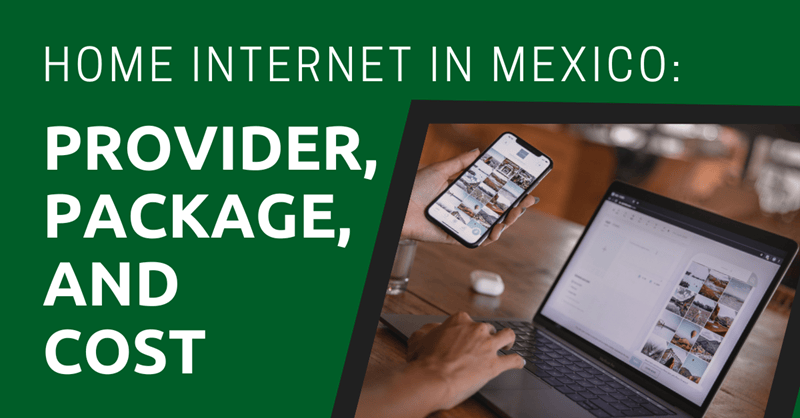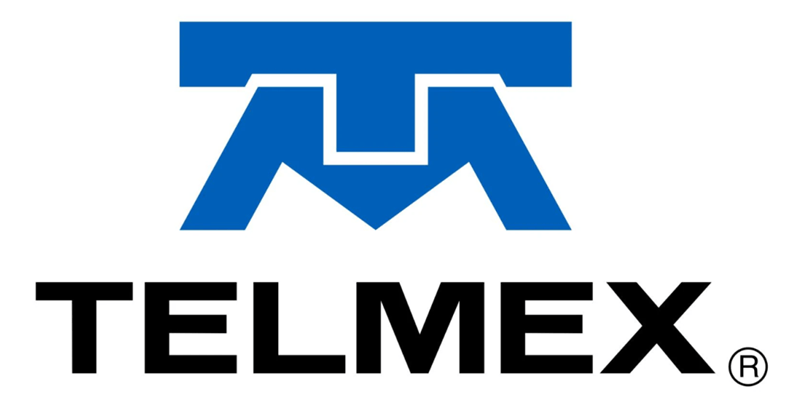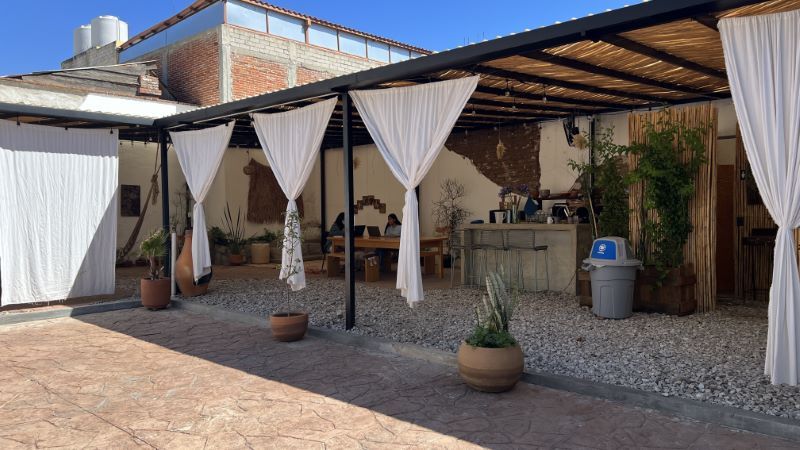
Dealing with Mexico’s internet providers can be confusing and more complicated than you may think.
Weighing the flashy promotions of one against the slightly different deals of another is a good recipe for a headache.
Let’s surf through some practical information to help you choose and install internet in your home in Mexico.
We’ll look at their speed, stability, price, installation, add-ons, and a few other important things you should be aware of when picking your internet provider in Mexico.
This article will take approximately 15 minutes to read. Don't have the time right now? No worries. You can email the ad-free version of the article to yourself and read it later!
Disclaimer: This article may include links to products or services offered by ExpatDen’s partners, which give us commissions when you click on them. Although this may influence how they appear in the text, we only recommend solutions that we would use in your situation. Read more in our Advertising Disclosure.
Contents
Key Takeaways
- Since Mexico is large, your first step should be to find a provider that covers your area.
- If you live in a major city like CDMX, you have all internet options available.
- Telmex has the broadest coverage, but the installation fee can be high.
- If you want fast speed, consider Totalplay.
- If you live in a rural area, you might need to use satellite internet instead.
Overview
All of Mexico’s big cities and most smaller towns have fixed internet services like fiber-optic or other kinds of cable.
Newer neighborhoods and sparser areas may only have one provider. Remote rural areas and neighborhoods that are still mostly under construction may not have any kind of cable internet at all, and you may have to use an alternative like satellite internet.
We’ll look at a few of these alternatives below, but they can be stressful and unreliable. A fiber-optic or other type of broadband connection is generally your best bet if you can get it.
When you look for an accommodation in Mexico, especially if you still see a lot of houses under construction nearby, ask your realtor or would-be neighbors:
- Are there multiple internet services in the area?
- Which one do most people use?
If you hear that fixed internet is not available yet but will definitely be installed soon, enjoy the sweet clucking of your unhatched chickens. It means it’s going to take maybe a few more years until it is installed.
If you plan to live in an established neighborhood, you’ll probably have plenty of providers to pick from, each with slightly different packages and plans.
We’ll look at some specifics below, but the main differences you’ll find are along the lines of varying download speeds, consistency, and installation costs.
Plans
Internet plans run from a minimum of $350 MXN for 20 Mbps up to over $1,000 MXN per month for 200 Mbps.
Many include optional extras like
- home phone line
- cable TV channels
- streaming services
- cloud storage space
- antivirus software
- shopping services
- etc.
Internet providers often run little campaigns in specific neighborhoods offering discounts and deals for people who sign up with their door-to-door vendors or leaflets.
I’ve caught canvassers offering as much as 25% off their regular monthly plans and sticking to it for years.
Look out for colorful little glossy papers stuffed into your gate’s grill.
Top Internet Providers in Mexico
Telmex
Telmex is Mexico’s largest internet provider with about 40% of the market. It has the most extensive coverage in the country and is the only option in many rural areas.
According to internet performance analysis service, Speedtest, Telmex comes in third place in Mexico for both real average download speeds and consistency.

It averages about 71% efficient access during high usage periods.
Its basic home internet plan starts at just under $400 MXN for 60 Mbps.
You can also choose pricier plans that include
- a landline with unlimited local, national, or even international calls
- Netflix membership
- antivirus software
- cloud storage.
Telmex’s plans also give you access to its large public Wi-Fi hotspot network, available at airports, restaurants, and shops across the country.
You’ll be able to sign in and surf with your Telmex username and password.
Get Telmex internet here:
Website: https://www.telmex.com
Phone number: 800 123 2222
IZZI
IZZI is one of Mexico’s newest internet providers.
Operated by Televisa, it covers about 25% of Mexico’s internet market, and you can find it in around 30 Mexican states, including el Estado de Mexico, Nuevo Leon, and Jalisco.

Here’s a comprehensive list of the Mexican states and cities where IZZI has coverage.
As of 2024, promotions aside, IZZI offers the cheapest basic plan in the country at $350 for 20 Mbps. Its more expensive plans include streaming services, cable channels, etc.
Speedtest’s ranking for IZZI shows it right where a budget provider should be, in a solid fourth place for both actual download speeds and consistency. Its high usage efficiency is a couple percentage points below Telmex’s at 69%.
Get IZZI internet here:
Website: https://www.izzi.mx
Phone number: 800 607 7084
Megacable
Megacable offers telephone, television, and fixed internet services in most states across Mexico. A relatively newer entry into the market, it covers about 15% of Mexico’s fixed internet market and is still hungry to grow. That means you can often find some pretty good deals in their plans.

Speedtest shows Megacable in second place in Mexico in both true download speeds and consistency. Its efficient uptime during usage peaks hovers around 77%.
Megacable’s cheapest plan starts at $450 MXN for fiber-optic internet at 60 Mbps plus a landline with unlimited calls across North America.
Their website often features flash sales that lower this package to $300 MXN. Fancier packages include cable television channels and higher Mbps.
Get Megacable internet here:
Website: https://megacable.com.mx
Phone number: 800 444 0630
Totalplay
Totalplay is Mexico’s high-end internet provider, solidly in first place in Speedtest’s analyses both of verified download speed and consistency.

With only 17% of Mexico’s internet market share, it offers the lowest latency and an efficiency of 83% during high usage periods.
Besides fast internet, its premium packages include
- 80 HD cable channels
- integrated Alexa
- access to Totalplay’s Wi-Fi hotspot club
- unlimited calls across North America
- $1,600 MXN per month.
Its cheapest package comes in at almost $500 MXN per month.
Totalplay doesn’t charge for installation, and you can even order an express installation guaranteed to arrive within 24 hours.
Get Totalplay internet here:
Website: https://www.totalplay.com.mx
Phone number: 800 330 1111
Internet Provider Comparison
Here’s a comparison of the starter packages from Mexico’s top four internet providers.
| Provider | Price | Speed | Coverage | Installation | Add-ons |
| Telmex | $389 MXN | 60 Mbps | https://telmex.com/web/acerca-de-telmex/mapas-de-cobertura | Around $2,000 MXN for exterior and interior cabling | Paramount+ 100 GB cloud storageAntivirusHotspots Club Telmex |
| IZZI | $350 MXN | 20 Mbps | https://www.izzi.mx/cobertura | $225 MXN | Vix Premium |
| Megacable | $450 MXN | 60 Mbps | https://cobertura.megacable.com.mx/ | $100 MXN | 80 HD cable channelsParamount+Landline with unlimited calls to North America |
| Totalplay | $499 MXN | 75 Mbps | https://www.totalplay.com.mx/cobertura | Free | Landline with unlimited calls to North AmericaHotspots Club Totalplay |
Installation
When you sign up with any of the above companies, you’ll need to bring
- your resident card
- Your passport with a valid visa
- a proof of address, which can be a bill, bank statement, credit card statement, or rental contract in your name showing the address where you want to install the internet.
- You may have to pay the first month or a deposit before installation.
Installation is a small process, but it’s a process, so providers want to make sure you plan to commit.
When you sign up with your chosen provider, check if you can get free installation by signing a contract for a certain minimum number of months. The average minimum contract is around 6 to 9 months. Some plans may requires at least a 12-month contract.
You’ll need to find a place for the installation crew to put the company-specific modem and keep it there for the long term. The crew will hook up the modem to a broadband cable from the street and then hide the cable strategically throughout your house.
They have every incentive to show up fast and begin your business relationship, so installation is usually fast and easy.
You’ll find your network and login details and instructions written right on the side of your new modem.
Providers with Free Installation Fee
Newer providers often offer free installation.
For example, Totalplay comes with free installation, but you have to sign up for a minimum of 18 months.
Telmex has a minimum contract of 6 months, and they charge over $2,000 MXN to install exterior and interior broadband cabling.
You can pay immediately or in installments added to your monthly bill.
Don’t Pay in Installments
Once, I made the mistake of signing a Telmex contract with installation costs paid in installments.
The first month, when I saw the interest added, I marched into a Telmex attention center to try to pay the rest on the spot and hopefully keep the arm and the leg they were charging. They wouldn’t let me, so I ended up as a double amputee paying almost twice the actual installation price.
In official terms, they said there was no way to cancel the payment type. It made me wonder what other packages from them might end up being hard to cancel.
Beware of Dark Pattern
When picking your provider, beware of a dark pattern.
A dark pattern is a sales technique or user interface that a company has carefully crafted to trick their customers into giving them more money or time.
You’ll find dark patterns especially dense when choosing the little extras, add-ons, and side fees.
Optional Extras
Most of Mexico’s internet providers give you a small monthly discount if you contract your monthly streaming services through them.
This includes
- Netflix
- HBO Max
- Disney+
- Star+
- Paramount+
- Prime Video
- Etc
Just like regular cable television, bundling a bunch of services together lets you get each of them a little cheaper.
Please note that it’s easy to subscribe to these services through an internet provider. But it can be hard to unsubscribe them.
Alternative Internet Options
If setting up a cable-based router at home isn’t an option for you, possibly because you live in a rural area or a neighborhood with too few finished houses, there are a few tolerable alternatives.
Here are some of the best ones.
Mobile Internet
In a pinch, you can get a broad or unlimited mobile data plan and just use your phone to go online. In 2020, Mexico paved about 85% of its cellular networks with 5G, so you should be able to get some kind of reasonably fast signal almost anywhere.
Most providers’ “unlimited” plans cost somewhere between $500-$1000 MXN per month and actually have a data cap, generally around 10-15 GB.
You’ll also have to pay a little more if you want to be able to share your internet with other devices.
Related article: How to Choose the Best Sim Card in Mexico
Public Internet
Restaurants, bars, coffee shops, and all the other usual suspects generally offer their customers free Wi-Fi, which can work when you’re out and about.
Mexican airports give you an hour or so of free Wi-Fi before you have to start paying. Some of the long-distance trains and buses say they have free Wi-Fi, but I haven’t found one yet that worked reliably.
Internet cafes are slowly thinning out but haven’t yet disappeared.

Look for signs labeled “Internet” in the windows of shops labeled “Papeleria” or “Ciber.”
You probably don’t need to worry about security problems, as most vendors are just trying to make a living.
But you might want to give it some thought before exposing your mobile banking data over someone else’s Wi-Fi. Or you can increase your cyber security with a VPN.
Home Wireless Internet
If you plan to live in an area that doesn’t have broadband infrastructure yet but does get a good cellular signal, you can sign up for a high-speed home wireless internet plan.
These plans come with a special modem containing a SIM card similar to your smartphone’s sans the phone number.
You’ll need to install that modem securely somewhere in your home. It will pick up your provider’s cellular data signal and transform that into rich, thick Wi-Fi. If you move the modem more than 15 meters once your plan is in place, you may lose signal and have to notify your provider.
Home wireless network plans are available from Telcel and AT&T, ranging from around $300-$800 MXN per month. You can expect anywhere from 15-100 Mbps, but this can waver a lot with weather conditions. You may spend the rainy months battling Tlaloc for your Wi-Fi.
Satellite Internet
If you’re really going off the grid with nary a whiff of either broadband or cellular networks, your final best resort will be satellite internet.
Instead of using a broadband or SIM modem to pick up your internet signal, you’ll install an antenna from your provider on your roof or other open space.
Some satellite internet providers mail you an antenna and installation kit that’s pretty easy to put up yourself. Others send a technician around to install the dish for you and connect it to your indoor modem.
This will cost only a little more than a home wireless internet plan, and reliability and speed will fluctuate a little more with the whims of the weather. Most providers ask you to sign up for a long-term plan but will give you a small grace period to cancel if the connection is not stable in where you live.
Get a satellite internet plan here:
Related article: How to Choose and Install Satellite Internet in Mexico
Now, on to You
The good news is that no matter where in Mexico you plan to hide away, you can usually find some kind of internet provider to keep you hooked up to the planetary mega-brain.
Telcel has the most widespread broadband and cellular coverage in Mexico, but if you plan to live in a busy area, you can usually get a cheaper, faster, or more reliable deal at IZZI, Totalplay, or Megacable.
You can start right now by thinking about a permanent roost for your modem and then clicking through a few of the above links.
Read the fine print and ask about cancellation policies especially when considering add-ons, extra costs, and payment plans to avoid dark patterns.








